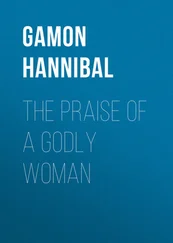There is a story that back in the 1940s the Soviet Union bought the film of John Steinbeck’s The Grapes of Wrath to use as propaganda, to show how bad things were in the ‘free world’. Steinbeck’s story is, as stories go, a pretty miserable one, with the Joad family, including the daughter burdened with the ridiculous name of Rose of Sharon, like many others in that place at that time, losing everything when the rains fail and the rivers run dry and their lands turn to dust, and being forced to load up onto their battered old car what few worldly possessions they have and set off to try—spectacularly unsuccessfully—to find a better life elsewhere. Everywhere they turn they are shunned and insulted, and doors are slammed in their faces. And people die. It doesn’t get much worse than that, you might think. But when Soviet audiences saw the film, they didn’t see the same things that you or I might see, and they came out shaking their heads in wonder. They came out shaking their heads in wonder not so much at how bad things were in the USA, but at the fact that over there even the poor , even the lowest of the low, even peasants driven from their farms, that these people had their own motor-cars. Their own . The film was subsequently banned.
That’s what civilisation is like, these days. Even the poor people have motor-cars, now, and computer-game consoles, and new clothes, and more food than they need. Even the poor people are getting fat. A bit of starvation would probably do some of us quite a lot of good, you might think—and not just the poor, either, to look at our expanding waistlines.
But as you surfeit on the sumptuousness of it all, this life that civilisation has served up, and the feast that’s spread out for you, you might find your mind wandering, from time to time, to the issue of the bill, and to what extent you, personally, will be expected to pay.
You might begin to wonder what the damage is here, exactly. Or is there none? Do we genuinely have, this time, if not a completely free lunch, then at least a damn cheap and filling and tasty one? And Wilfred Thesiger, explorer, nomad, ex-Eton and Oxford and His Majesty’s Colonial Service, distinguished SAS officer and sometime military adviser to Haile Selassie, wanderer through the lost worlds of vanished tribes, current resident of Tite Street, Chelsea, and also of a mud hut in the middle of nowhere, was probably as good a person to ask as any.
I booked my ticket the next day.
Go back a couple of years, and you will find me behind the counter in a provincial high-street bank, lending money to people. Go back further still and you’ll find me upstairs in that same bank, in what was known as the ‘machine room’, taking the elastic bands off bundles of cheques and then counting those cheques, sorting them into account-number order and walking up and down the great long tables that dominated the room and stacking the cheques onto the appropriate numbered sections, for some eight hours a day.
There were machines there, also: quite big ones, I seem to think, but I can’t for the life of me remember what it was that they did. Perhaps I never knew.
You get faster at it, after a while, machine-room work. And you could go up to people who’d been there a long time, give them a block of cheques and say, ‘count those’, and they’d tap the block against the table once or twice to square the edges off, set it down, flex their fingers and then there’d be a blur of fingers and a whirring of paper, and half a second later, or whatever it was, it would be ‘a hundred and twenty-seven’. I am convinced that some of the tapping and the finger-flexing wasn’t strictly necessary, but was a vanity, an affectation, to impress, a little stylistic flourish to say, ‘Behold! Here is a master of the art.’
These skills, such as they were, and to the extent that I mastered them, did not transfer well to lending money to people. Lending money to people was something that I did worse than I did counting cheques.
People would come in with the most outrageous stories of why they needed money and, most times, so long as they managed to keep a straight look on their face and a credible tone to their voice, I would believe them.
‘I need,’ said one woman, ‘a completely new wardrobe.’
‘But you have no money. You have, in fact, less than no money. And this has been going on for … well, it looks like several years now, as far as I can see from your file. We need to talk about how you intend to pay some of it back, rather than how much more of it you need to borrow.’
‘Well, that’s why I need this money, you see. You see, what it is, is that I’ve just been offered a job. And it’s a good job, a proper job in an office—but the thing is, I don’t actually have any office clothes to wear, other than what I’ve got on, which is what I wore for the interview. So I need the clothes for the job, to earn the money to pay back what I owe.’
‘Oh, I see. Well, that sort of makes sense, I think. How much is it that you say you need, for these clothes …? I’m sorry, how much? Really? Well, that does seem a bit steep … No, I do know how important it is to create the right impression. And as you say, it will give you the ability to pay back what you owe. I’ll just get the paperwork sorted out. You’ll need to sign here … and here, too.’
She was glad that I understood these things, she said, as she signed. Not like her mother, who’d advised her to make do with what she had. Not, of course, that she actually had anything to make do with, as she’d already explained.
I never saw her again, or the money, either.
And all the while and all the day in my peripheral vision and hearing—and sometimes more directly—I could see, and hear, and feel the under-manager, who ran the day-to-day business of the bank, and the rising sense of stress and panic with which he started and finished every day of his working life. That deadlines should be met, that queues should not be too long, that people should not take much time over their tea-breaks, that people should arrive in the mornings precisely when they were meant to arrive (and on the dot of nine, the signing-in book was whisked away to the manager’s office, whence anyone whom arrived after should go to explain themselves), that procedures should be followed, that shoes should be shined and trousers pressed, that the books should balance. All these things concerned him greatly, and visibly and audibly. As each day wore on, the note of tension in his voice would grow more strangulated, the temper sharper and more hair-triggered, and for every fault or omission he spotted and corrected, others would arise, hydra-like, to take their place. Too many humans in the machine room of his bank; too much slackness, too much imperfection. Fraud and deception.
You would get the ones who planned it all in advance. People who’d open an account—sometimes in their own name, or sometimes, on some pretext, with a friend or colleague, with whom they’d sign the mandatory declaration of ‘joint and several liability’ making them both personally liable for all debts on the account, whoever caused them.
They’d keep the account ticking over, quietly and in credit, for a year or more, putting in requests for a new cheque-book every now and then, until they were good and ready, when, all of a sudden, there’d be twenty cheques issued in a single day, and more the next, and the next, and they’d be drawn out to off-licences and clothes shops and casinos, and the account would go tens, hundreds and thousands of pounds overdrawn in the space of a single week. You’d phone the account holder, send letters, but there would be no reply. And so you’d bounce the cheques, and brace yourself for the wave of angry phone calls from outraged creditors and even-more-outraged co-account holders.
Читать дальше












